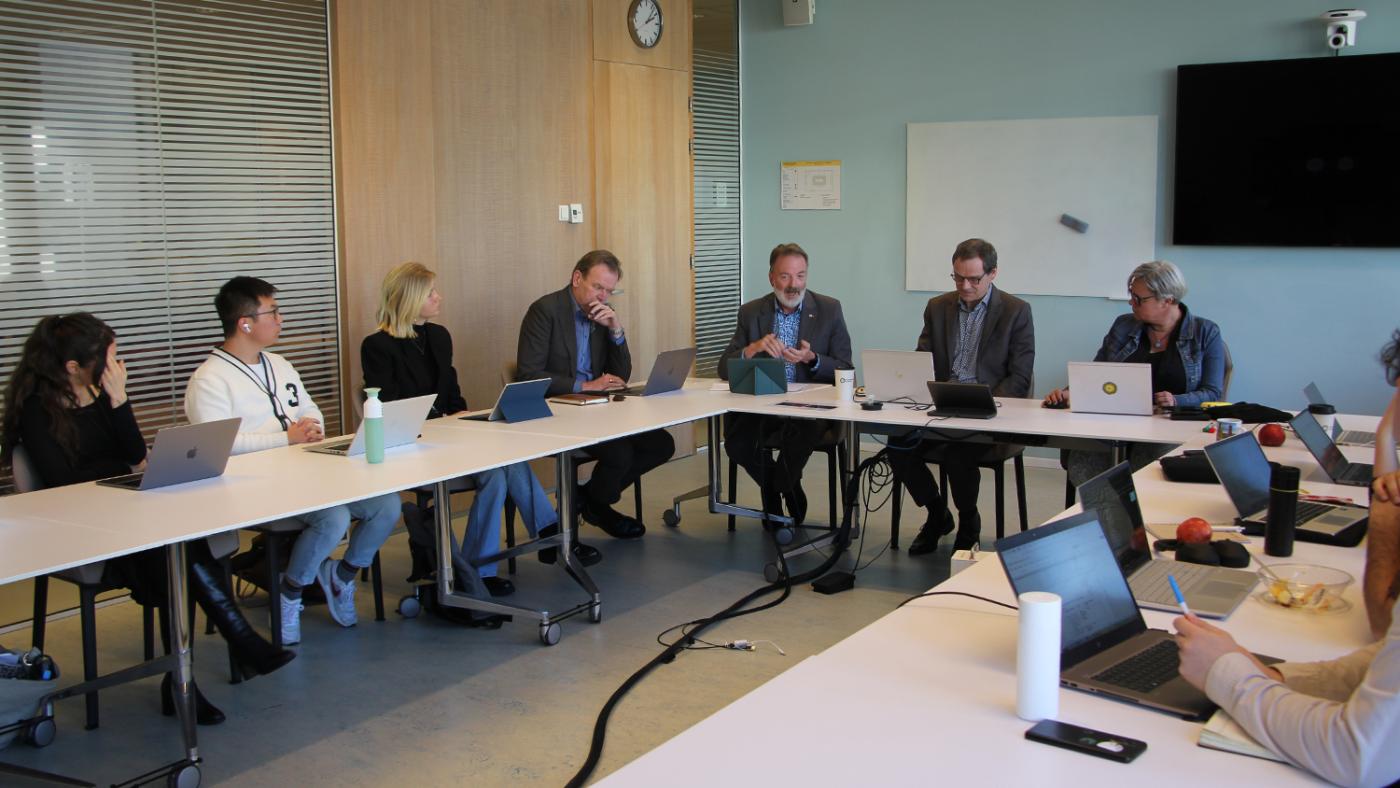Discussion on refugee students
Unrest in University Council over tuition fees for Ukrainian students

The student members of the council fear that the process will be arbitrary. It is up to the faculties to decide which students are granted refugee status, which allows them to pay the statutory tuition fee, but the student party Vuur would prefer this decision to be made at a central level.
Faculties can only decide whether or not to grant a student refugee status after said student has been admitted. Vuur is concerned about this, as they feel that many refugees would refrain from applying to UU because they would have to pay the institutional fee, which is much higher. That's just one of many concerns student members have expressed about the university's plans.
Discount
Due to the war, Ukrainian students have been able to attend UU at reduced rates for the past two academic years, 2022-2023 and 2023-2024. Normally, students from outside the European Union must pay the institutional fee, which ranges from around 12,500 euros to well over 23,000 euros a year, depending on the programme and whether it’s a Bachelor’s or a Master’s programme.
Dutch universities hoped that the government would bear the costs of this discount, but, in June 2023, the Ministry of Education informed them that it would not do so. As a result, eight other Dutch universities stopped giving this discount last year. Since most institutions do charge the institutional fee, the university’s Executive Board fears Ukrainian students will be pulled to UU if it takes a different stance.
Exception
For this reason, UU wants to demand prospective Ukrainian students pay the institutional fee, starting from the next academic year, 2024-2025. Those already studying at UU will continue to pay the statutory tuition fee. They are entitled to this discount for the duration of their academic programme, plus one year.
Currently, thirty-five students from Ukraine study at UU, of whom three-quarters are enrolled in the Faculty of Law, Economics and Governance. Most of these students (thirteen) follow the Bachelor’s programme Economics & Business Economics, according to a memo (solis ID required) from the Executive Board to the University Council.
Exception
The Executive Board wants to make an exception for Ukrainians and other students with refugee status. Deans can already make an exception for individual students in dire situations, allowing them to pay the statutory tuition fee instead of the fee for non-EU students. The Executive Board is "committed to being generous in using this latitude to make individual exceptions", according to a written response.
In addition, the Executive Board objects to making a distinction between Ukrainian students and students from other areas marked by conflict and war, stated UU Rector Henk Kummeling at an earlier committee meeting with the University Council. During that meeting, councillors disagreed with the decision to increase tuition fees and were critical of implementing plans to grant refugee students an exceptional position.
Fund
To address the council's concerns, Kummeling wrote a letter (Solis ID required) with further information on Monday. The letter sets out several criteria that Ukrainian refugee students must meet to qualify for lower tuition fees.
It's up to the faculties to decide on the admission of refugee students, but "exchange and coordination between faculties will be centrally organised" to promote equal treatment and prevent arbitrariness, Kummeling writes in the letter.
In the University Council meeting held on March 11, this additional commitment did not appear to alleviate the concerns of the student members. Vuur wonders if financial interests won’t factor into the admission of refugee students after all. The Faculty of Law, Economics and Governance has the most Ukrainian students and therefore bears the highest costs.
Compensation
Kummeling stressed that the admission of refugee students should be based on substantive considerations rather than financial concerns. The Executive Board wants to avoid faculties being "disproportionately affected" and is working with the Faculty of Law, Economics and Governance to devise a solution for the lost revenue. UU Vice-President Margot van der Starre referred to the substantial extra funds the faculty receives from the administration to cover the additional costs.
The student members called for a suspension of the meeting to further deliberate, after which a narrow majority of the student delegation voted in favour of the proposal. In addition, the student delegation announced to share some remaining concerns in writing, which the Executive Board can take into account when implementing the new policy.
Although the student delegation remains critical of the plans, it’s also "happy that arrangements have been made at all to support Ukrainian students," the president of the student delegation, Julia Waterval, said after the vote.